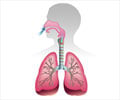Clinical Features Of Anorexia Nervosa:
“Anorexia nervosa is a disease in which the concept of the whole person is so confused, so dialectically divided, that "I" can at the same time be choosing to live, as the self, and choosing to die, as the body, however unconscious those choices may be”. - (Sheila MacLeod, 1981)
Anorexia Nervosa is characterised by a very low body weight, generally defined as 15% below the ‘Body Mass Index ’ (BMI).
- This condition usually begins in adolescence.
- It typically starts with an effort to diet that gets out of self-control.
- Characteristic sign of anorexia nervosa is the intense fear of becoming 'fat' or putting on any extra weight.
- The patients usually have a distorted image of their body and believe that they are grossly over-weight when in reality they are underweight and this is the reason they refuse to seek help.
- The condition is characterised by a very low body weight, generally defined as 15% below the Body Mass Index ' (BMI).
- The characteristic psychological features include obsessive thoughts related to the size and shape of their body.
- To become thin the patients-
- May generally eat very little, setting themselves very low calorie limits.
- May try to achieve weight loss by-
- Inducing vomiting
- Strenuous exercise
- Misuse of laxatives
However interstingly they maybe pre-occupied by the thought of food.
Sometimes they may enjoy cooking an elaborate meals for others -
- Sometimes patients with Anorexia Nervosa may have associated 'shop lifting' habit especially for food items.
- There are groups of patients with this condition who do the complete opposite initially.
- These patients have repeated episodes of 'binge eating' (uncontrollable eating).
- It is noted that this behaviour becomes more frequent as the condition becomes chronic, and also with increase in age.
- During these binges, the patients eat all the food they have been avoiding, and after eating excess they induce vomiting.
- An aftermath of these binge-eating episodes is a feeling of remorse, followed by intense efforts to lose weight.
- The patients on being encouraged or forced to eat, tend to become angry, hide the food, or vomit as soon as the meal is over.
- Amenorrhoea is a condition that is used as diagnostic criteria in women with Anorexia.
- Patients commonly show symptoms of depression, along with obsessive-compulsive personality traits.
- Mood swings and social withdrawal are other common features.
- There is an increased lack of sexual interest in both men and women.
Signs of Anorexia Nervosa:
- Deliberate starvation to achieve weight loss.
- Harbours strong feelings of being obese when actually too thin.
- An immense fear of weight-gain.
- Refusing to eat regularly combined with the denial of hunger.
- Constant exercising
- Presence of excessive hair on the body or the face (hirsuitism).
Anorexia nervosa is a disease in which the concept of the whole person is so confused, so dialectically divided, that "I" can at the same time be choosing to live, as the self, and choosing to die, as the body, however unconscious those choices may be. - (Sheila MacLeod, 1981)




















